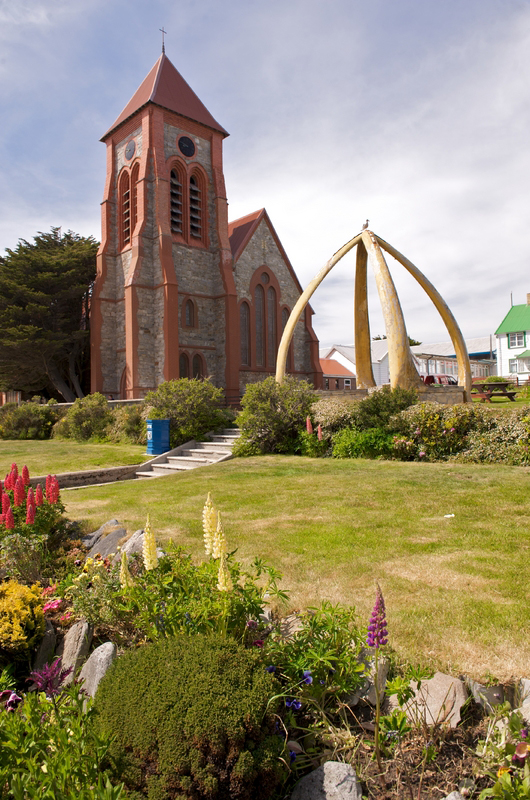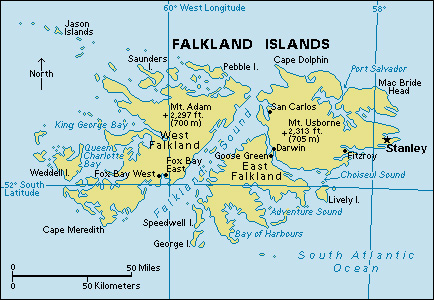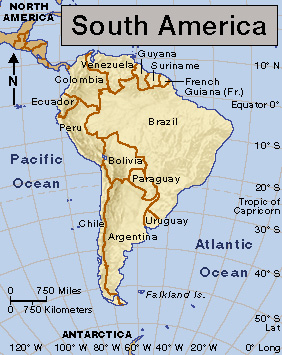Falkland << FAWK lund >> Islands make up an overseas territory of the United Kingdom. The islands lie in the South Atlantic Ocean about 320 miles (515 kilometers) east of the southern coast of Argentina. They form the southernmost British overseas territory outside the British Antarctic Territory. Argentina also claims ownership of the Falkland Islands. Argentina calls the islands the Islas Malvinas.

The territory includes two large islands, East and West Falkland, and hundreds of smaller ones. East Falkland covers 2,550 square miles (6,605 square kilometers), and West Falkland covers 1,750 square miles (4,533 square kilometers). The remaining islands have a combined area of about 400 square miles (1,035 square kilometers). All the islands together have a coastline of 800 miles (1,288 kilometers). The climate is damp and cool. Strong winds limit the growth of trees on the islands.

Most of the approximately 3,000 inhabitants are of British origin. About three-fourths of the people live in Stanley, the capital and chief town. Stanley is on East Falkland Island. The Falkland Islands’ main source of income comes from the sale of fishing licenses to foreign fishing fleets. Many of the islanders raise sheep and export wool. The sale of postage stamps and coins, primarily to collectors, also contributes to the economy.
A governor, chief executive, and Executive Council (cabinet) administer the Falkland Islands. The British monarch appoints the governor, who appoints the chief executive. A partly elected Legislative Assembly makes the islands’ laws. The government provides free elementary and secondary education. Teachers visit some children in isolated areas.

The English explorer John Davis sighted the Falklands in 1592. British Captain John Strong first landed on the islands in 1690. He named them for Viscount Falkland, the British treasurer of the navy. France, Spain, and Argentina later claimed the islands, but British rule was established in 1833. The Falklands are now an important British base. The British won a naval victory over Germany near the Falklands in 1914, during World War I.
In April 1982, Argentine troops occupied the islands. Britain then sent troops, ships, and planes to the Falklands. Air, land, and sea battles broke out between Argentina and Britain. The Argentine forces surrendered in June 1982.
In the early 2000’s, Argentina’s government began pressing the British government anew to hold negotiations about who should control the Falklands. In 2010, British companies began exploring for oil in waters near the islands. In 2013, Falkland Islanders voted almost unanimously in a local referendum (direct vote by the people) to remain under British rule. Argentina discredited the vote.
See also Falklands War.
